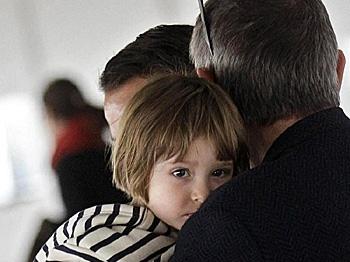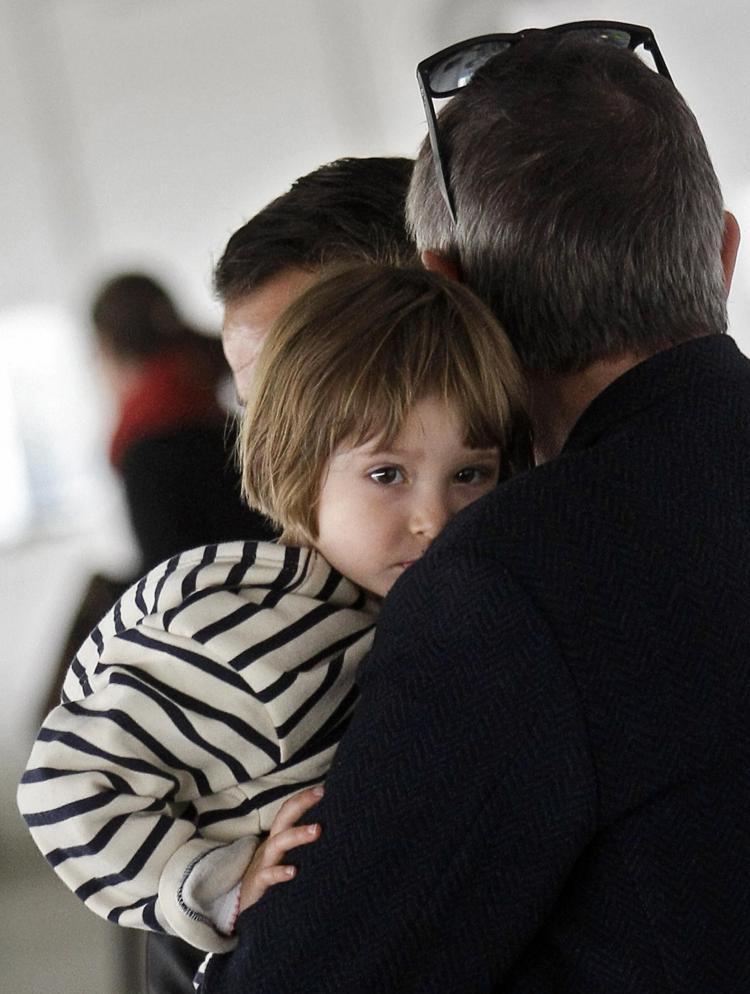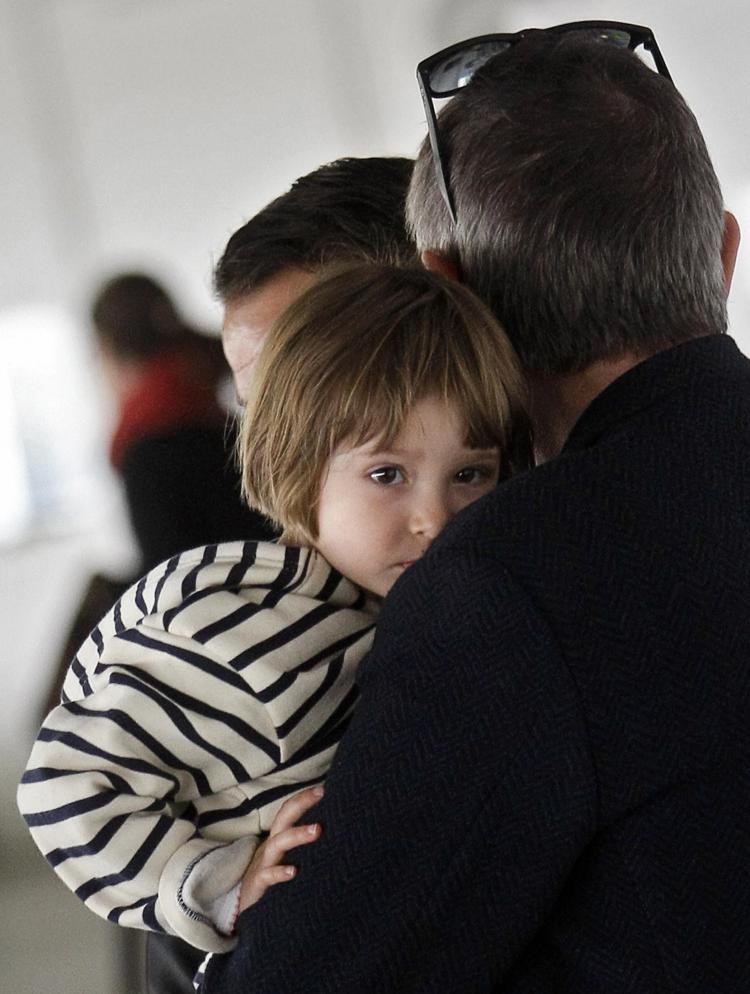PARIS—Three weeks after being abducted by her Russian mother, 4-year-old Elise is finally back “home” in the French southern city of Arles with her French father, Jean-Michel Andre. However, the story is not yet over for Elise, as both the French and Russian governments are still arguing on whether “home” for the girl is France or Russia.
Elise was born in Moscow in 2005 and has both Russian and French citizenship. After her parents divorced in 2007, she was taken from France to Russia by her mother, Irina Belenkaya, until the father took her back to France at the end of 2008.
Elise started to make headlines in French media when, on March 20, she was abducted in broad daylight by three Russians. They severely beat the father in the street and ran away with the child.
It soon became clear that Elise’s mother, Belenkaya, was behind the plot, as evidenced by different testimonies and email communications where she told Andre he would “never see Elise again.”
From the beginning, Russian authorities made it clear to the French government that no extradition was to be expected if the mother was already back in Russia, since she and Elise both have Russian citizenship. To make the situation even more complicated, Andre is under an international search warrant issued by Russia for abducting Elise in 2008, while Belenkaya is under another international search warrant issued by France for abducting Elise in 2007 and 2009.
The affair took a new turn on April 12, when Belenkaya was arrested by Hungarian police while attempting to cross the Ukrainian border, carrying Elise with her. On April 14, Jean-Michel Andre had already brought the child back to France, triggering dissatisfaction on the Russian side. Sergei Lavrov, the Russian minister of foreign affairs, commented to the media that Hungary had taken a “hasty” decision in returning her to France, while Russian media widely criticized Hungarian authorities for “bending” to France.
Belenkaya, could be deported back to France where she would face a 5 to 10 years in jail for child abduction. But Andre already made it clear that he doesn’t want Belenkaya in jail and hopes to have a dialogue for the sake of their child.
Russia and France will begin joint legal consultations on the subject, as their respective court systems have both ruled in favor of their own nationals in receiving custody of the child. A team of legal experts from both parties plan to meet and find what they hope will be a clever way out. In the context of heavy media attention, the legal imbroglio between the two countries now carries a symbolic display of defending the rights of their own nationals.
Elise was born in Moscow in 2005 and has both Russian and French citizenship. After her parents divorced in 2007, she was taken from France to Russia by her mother, Irina Belenkaya, until the father took her back to France at the end of 2008.
Elise started to make headlines in French media when, on March 20, she was abducted in broad daylight by three Russians. They severely beat the father in the street and ran away with the child.
It soon became clear that Elise’s mother, Belenkaya, was behind the plot, as evidenced by different testimonies and email communications where she told Andre he would “never see Elise again.”
From the beginning, Russian authorities made it clear to the French government that no extradition was to be expected if the mother was already back in Russia, since she and Elise both have Russian citizenship. To make the situation even more complicated, Andre is under an international search warrant issued by Russia for abducting Elise in 2008, while Belenkaya is under another international search warrant issued by France for abducting Elise in 2007 and 2009.
The affair took a new turn on April 12, when Belenkaya was arrested by Hungarian police while attempting to cross the Ukrainian border, carrying Elise with her. On April 14, Jean-Michel Andre had already brought the child back to France, triggering dissatisfaction on the Russian side. Sergei Lavrov, the Russian minister of foreign affairs, commented to the media that Hungary had taken a “hasty” decision in returning her to France, while Russian media widely criticized Hungarian authorities for “bending” to France.
Belenkaya, could be deported back to France where she would face a 5 to 10 years in jail for child abduction. But Andre already made it clear that he doesn’t want Belenkaya in jail and hopes to have a dialogue for the sake of their child.
Russia and France will begin joint legal consultations on the subject, as their respective court systems have both ruled in favor of their own nationals in receiving custody of the child. A team of legal experts from both parties plan to meet and find what they hope will be a clever way out. In the context of heavy media attention, the legal imbroglio between the two countries now carries a symbolic display of defending the rights of their own nationals.







